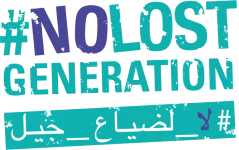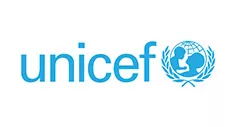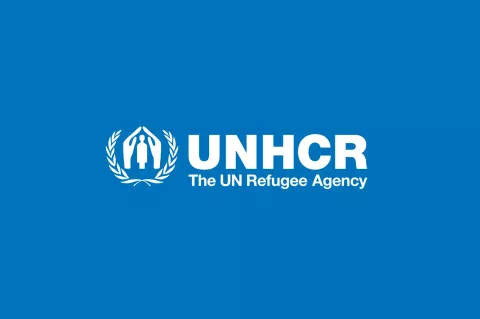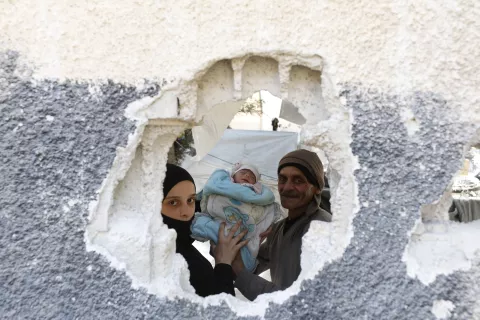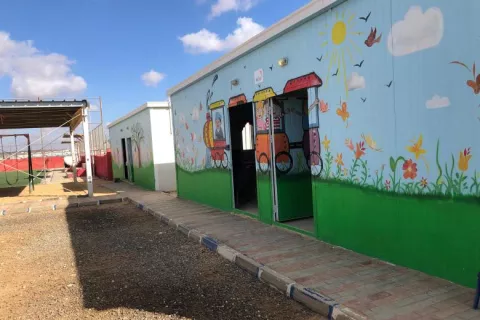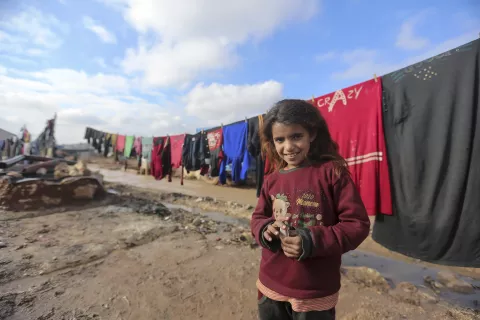A girl with a bright smile and a new home
UNICEF
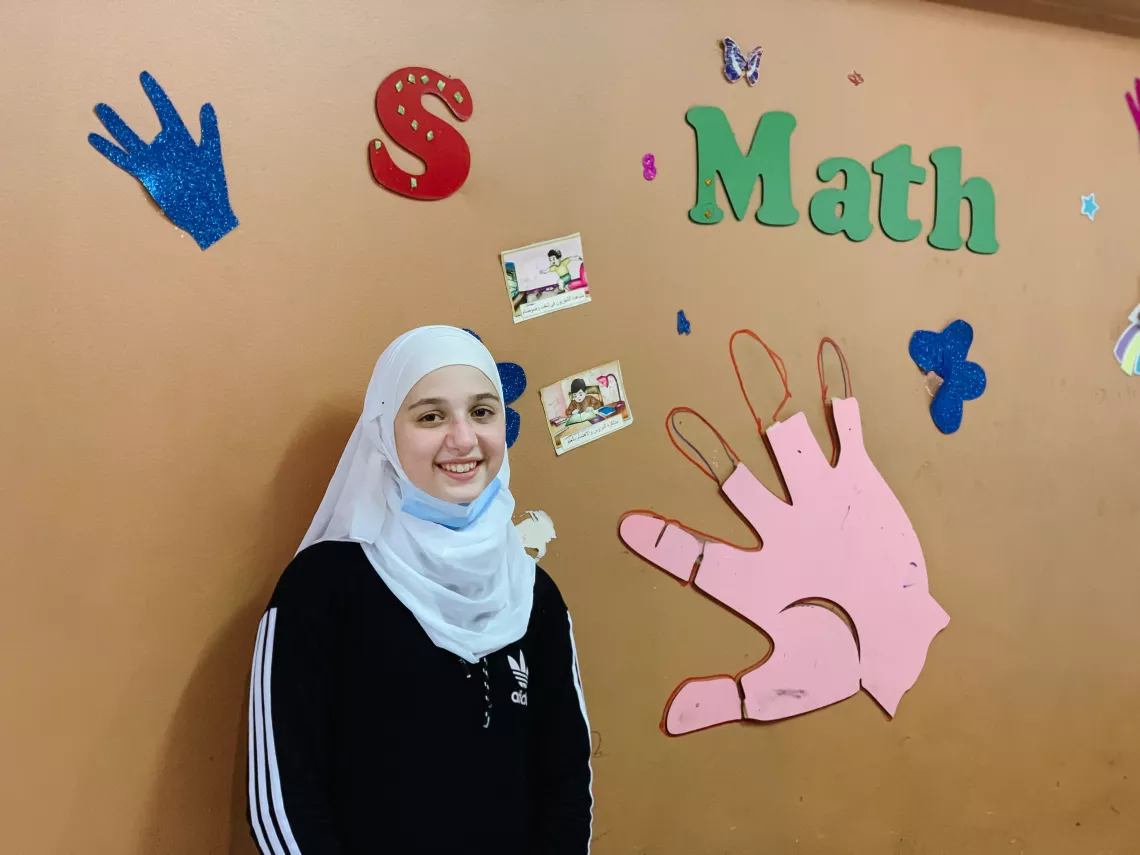
No Lost Generation is marking the 10th year of crisis inside Syria with a series of blog posts shedding light on the comparative situation of children. Publishing one blog post a day, we will underline the needs of children and youth affected by the Syrian crisis and share the experience of our partners responding to their plight. We need to redouble our efforts and rethink our interventions, to shape a better future for 10.7 million children.
She displays a bright smile and speaks about her life experience as a refugee in Egypt. Maise Al-shoubi is a 14-year-old Syrian student. She was born in Syria but had to flee the country with her parents 9 years ago. Now, she calls Egypt “home”.
Maise remembers very well her family house in Syria. She used to play in the backyards and buy candy from the small shop around the corner of her street. Before the war, Syrian streets were a peaceful play haven for children. Maise even recalls building sandcastles and running around with her cousins, who lived in the same building in her hometown of Daraa.
But Daraa also ended up being at the center of much turmoil and unrest during the conflict in Syria. Maise’s family decided to seek refuge in Egypt to protect their children from the horrors of war.
“I have been in Egypt for the past 9 years. I am practically Egyptian! I even consider Egypt as my main homeland as I didn’t live in Syria for long. Egypt is the land of all lands, my experience has been very positive especially at school” says Maise with a shy smile, reflecting on how she enjoys the lively streets of Egypt.
“Accept destiny, anything life throws at you is just another opportunity. If you had to leave your country, then accept that and live your new life to the fullest.” says Maise.
“I foresee myself as an Engineer in the coming ten years, as I love mathematics. It is one of my favorite subjects and I am very good at it. If I succeed, I think I will have fulfilled my dreams by then and be equipped to face the world with my education, maybe even have job in my field.”
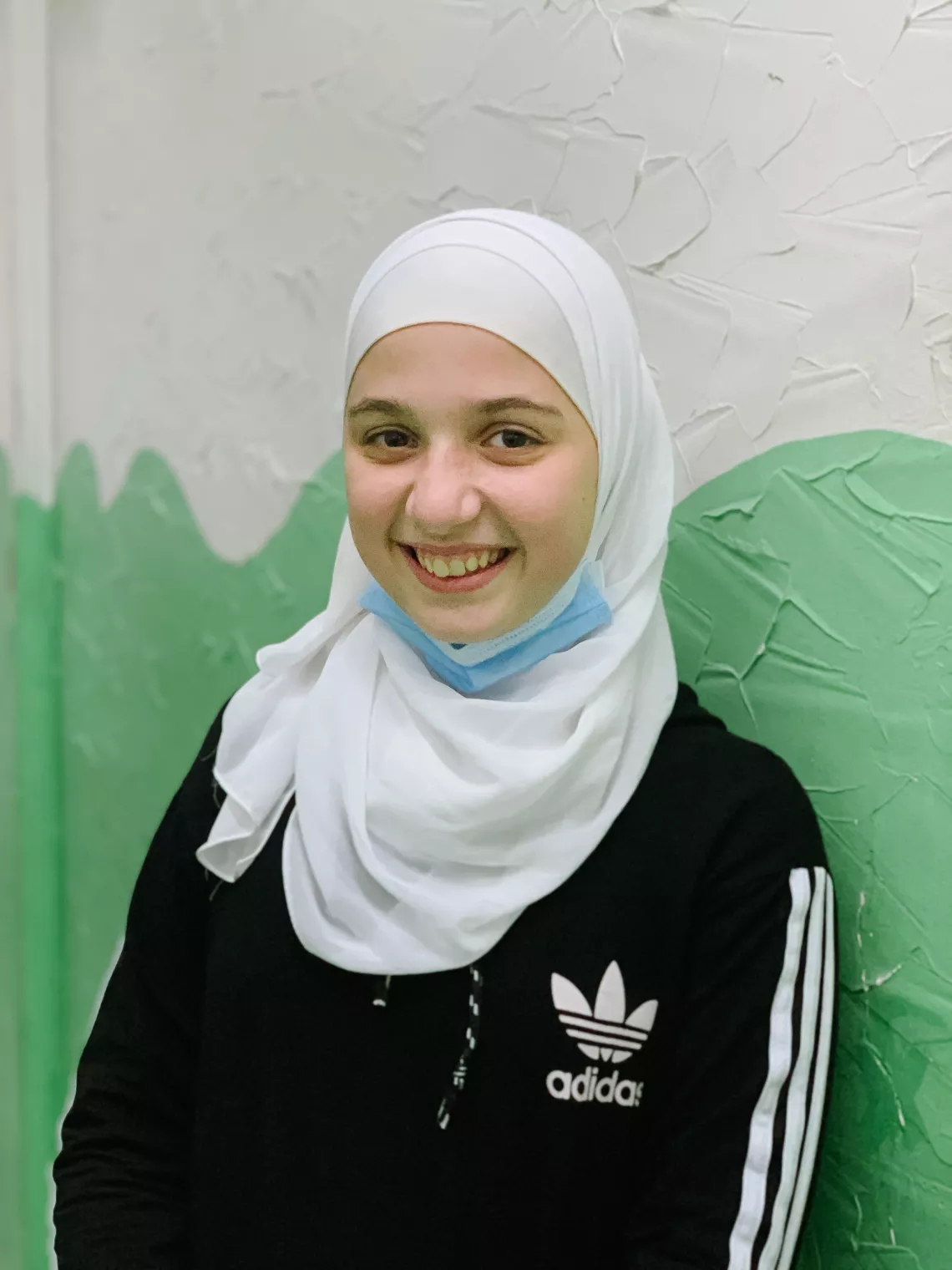
Maise Al-shoubi is a 14-year-old Syrian student. She was born in Syria but had to flee the country with her parents 9 years ago. Now, she calls Egypt “home”.
As many Syrian students in Egypt, Maise has been taking the Egyptian curriculum, studying part-time at public schools and regularly attending Syrian Learning Centers to improve her education. Walking through Maise’s classroom in her learning center, she adds: “COVID-19 has drastically changed everything over the past year. The learning pace is very fast. Although educational content is somehow accessible, comprehending the materials is more difficult. We miss the classroom setting and the human aspects of having a teacher explaining to us the lessons.”
“I have been relying on the use of internet, Youtube and educational channels, as well as on the Ministry of Education educational channels on the television to compensate for the time spent outside the classroom. Moreover, I come to the center every other day where teachers are available to support, which is not making things easier” adds Maise.
Thanks to generous contributions from Al-Adwaa, Selah Altelmiz and Johnson & Johnson, UNICEF has so far supported 5,084 children with distant learning materials and hygiene supplies to support children education during the COVID-19 pandemic. Furthermore, with support from BPRM and the Dutch Government, UNICEF in Egypt is launching an educational platform, “The Learning Passport”, to support refugee children with distant learning. Thanks to Norway’s generous contributions, UNICEF collaborated with the Ministry of Education and Technical education, and 400 public schools hosting refugee children received rehabilitations which will benefit 9,825 refugee students registered in these schools.
“If I could make a wish, I would wish for COVID-19 to end and that we would get back to normal human communication, where we can hug and greet each other without maintaining physical distance”, concludes Maise.
About UNICEF
UNICEF promotes the rights and wellbeing of every child, in everything we do. Together with our partners, we work in 190 countries and territories to translate that commitment into practical action, focusing special effort on reaching the most vulnerable and excluded children, to the benefit of all children, everywhere.
For more information about UNICEF and its work for children, visit www.unicef.org/mena
Follow UNICEF on Twitter Facebook Instagram LinkedIn Youtube TikTok
